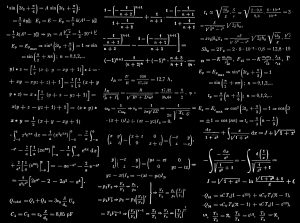How to Get a High Score in Olympiads with Abacus Training

Introduction
Problem-solving skills are crucial for success in Math Olympiads, where students compete with their peers to showcase their mathematical abilities. As a parent, you may be wondering how you can help your child excel in these competitive exams. One effective method that has proven to boost performance is abacus training. Abacus learning provides students with a strong foundation in mathematics and enhances their cognitive abilities, giving them an edge in these time-bound exams. In this article, we will explore how abacus training can help your child achieve a high score in Math Olympiads and provide practical tips for effective preparation.
Understanding Abacus Training
Abacus training is a unique approach to teaching mathematics that utilizes a centuries-old tool called the abacus. The abacus consists of rows of beads that represent different numerical values. By manipulating these beads, children learn to perform complex calculations quickly and accurately in their minds.
Abacus training focuses on developing mental math skills and improving concentration, focus, and problem-solving abilities. It helps children develop a strong number sense and pattern recognition, enabling them to tackle diverse and challenging math problems effectively.
2. Benefits of Abacus Training for Math Olympiad Preparation
2.1 Enhanced Problem-Solving Skills
Abacus training enhances problem-solving skills by promoting logical thinking and systematic approaches to complex problems. Students learn to break down challenging math problems into manageable steps, making it easier to tackle higher-order questions in Math Olympiads. The ability to approach problems analytically is a crucial skill that sets high-scoring students apart.
2.2 Increased Calculation Speed and Accuracy
Regular abacus practice significantly improves calculation speed and accuracy. In Math Olympiads, where time is limited and accuracy is paramount, this skill gives students a competitive advantage. With their mental calculation abilities honed through abacus training, students can solve more questions quickly and confidently, increasing their chances of scoring higher.
2.3 Improved Concentration and Focus
Abacus learning requires intense focus and concentration. Students must pay attention to the movements of the beads and perform calculations accurately. This focus translates into improved attention spans, helping students stay calm and composed during high-pressure exams like Math Olympiads.
2.4 Strong Number Sense and Pattern Recognition
Abacus training develops a strong sense of numbers in children. They learn to visualize numbers on the abacus, which enhances their numerical understanding. Additionally, the repetitive nature of abacus calculations helps students recognize patterns in mathematical problems, making it easier for them to solve complex equations in Math Olympiads.
2.5 Memory Retention and Observation Skills
Memorizing bead patterns and performing mental calculations improves memory retention and sharpens observation skills. This ability helps students recall formulas quickly and spot important details in complicated math problems during Math Olympiads.
3. Competition Strategies for Math Olympiad Success
3.1 Practice Mental Math Daily
Encourage your child to set aside dedicated time each day for mental math practice using abacus techniques. Start with simple arithmetic problems and gradually increase the difficulty level and speed of calculations. Consistency is key when developing mental math skills.
3.2 Simulate Exam Conditions
Regularly conduct timed mock tests to help your child build speed, accuracy, and confidence under pressure. Create an exam-like environment by setting a timer and providing sample Math Olympiad papers. This practice will familiarize your child with the time constraints and enable them to perform efficiently during the actual exam.
3.3 Apply Abacus Skills to Olympiad Problems
Encourage your child to apply abacus strategies to solve problems in Math Olympiad sample papers. Emphasize the importance of using visualization techniques and mental calculations for arithmetic, number theory, and pattern-based questions. The ability to leverage their abacus skills in real-world scenarios will significantly improve their performance.
3.4 Focus on Logical Reasoning
Math Olympiads often include logical puzzles and non-routine problems. Engage your child in solving these types of problems to further develop their analytical skills. Abacus training lays a strong foundation for logical thinking, making it easier for students to tackle such challenges with confidence.
3.5 Review Mistakes
After each practice session or mock test, analyze your child’s mistakes together. Identify weak areas or common errors and create a focused study plan to address them. Regular feedback and correction will help your child improve their problem-solving abilities and avoid repeating similar mistakes during Math Olympiads.
4. Mental Calculation Techniques for Math Olympiad Success
4.1 Addition and Subtraction
Abacus training provides students with efficient techniques for adding and subtracting numbers mentally. Encourage your child to visualize the abacus while performing these calculations, gradually moving away from physical manipulation of the beads.
4.2 Multiplication
Multiplication can be challenging, but abacus techniques simplify the process. Teach your child methods such as the vertical multiplication method and encourage them to practice mental multiplication regularly. With time and practice, they will develop fluency in mental multiplication.
4.3 Division
Division can be approached using abacus techniques as well. Teach your child how to break down the division process into smaller steps, utilizing the visualization skills they have developed through abacus training. Practice mental division using various techniques and encourage your child to solve division problems mentally.
4.4 Fractions and Decimals
Abacus training can also be applied to fractions and decimals. Help your child visualize these concepts on the abacus using bead placement, making it easier for them to understand and perform calculations involving fractions and decimals.
4.5 Advanced Problem-Solving Techniques
As your child progresses in their abacus training, they will learn advanced problem-solving techniques such as algebraic thinking, logical reasoning, and visualization. These skills are invaluable for tackling more complex math problems in Math Olympiads.
Abacus training offers numerous benefits for Math Olympiad preparation. It enhances problem-solving skills, improves concentration and focus, and develops strong number sense and pattern recognition. By incorporating mental calculation techniques into your child’s daily practice and following effective competition strategies, you can maximize their chances of achieving a high score in Math Olympiads.
Abacus Training for Olympiad Success
|
Abacus Skill Developed |
Olympiad Advantage |
|---|---|
|
Fast, accurate calculations |
Solve more questions in less time |
|
Strong concentration |
Stay focused during lengthy, challenging exams |
|
Logical and systematic thinking |
Tackle complex, multi-step problems efficiently |
|
Number sense and pattern spotting |
Quickly identify solutions to pattern-based questions |
|
Memory and observation |
Recall formulas and spot details in tricky problems |
|
Stress management |
Remain calm and composed under exam pressure |
Conclusion
Abacus training is a powerful tool for nurturing problem-solving skills in children and preparing them for Math Olympiads. The structured approach of abacus learning, combined with regular practice and the application of mental calculation techniques, equips students with the necessary skills to excel in these competitive exams. By supporting your child’s abacus training journey and implementing effective strategies, you can help them achieve their goals and unlock their full mathematical potential.
SIP Abacus offers world-class skill development programs that utilize the abacus tool and visualization techniques to teach mental math skills to children aged 6-12. Their curriculum is divided into modules with structured levels, providing a proven track record of success. SIP Abacus classes incorporate fun learning, interactive software, lesson plans, and materials designed to engage children. Join SIP Abacus today to give your child the competitive edge they need to succeed in Math Olympiads.



